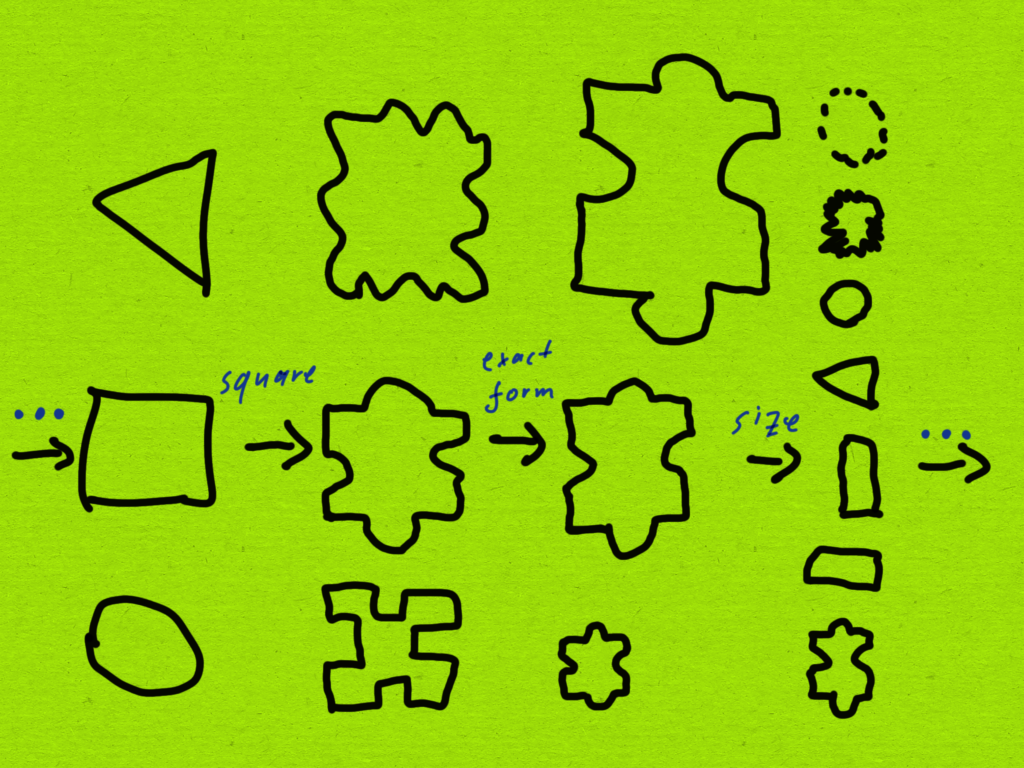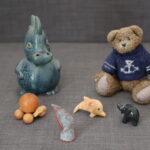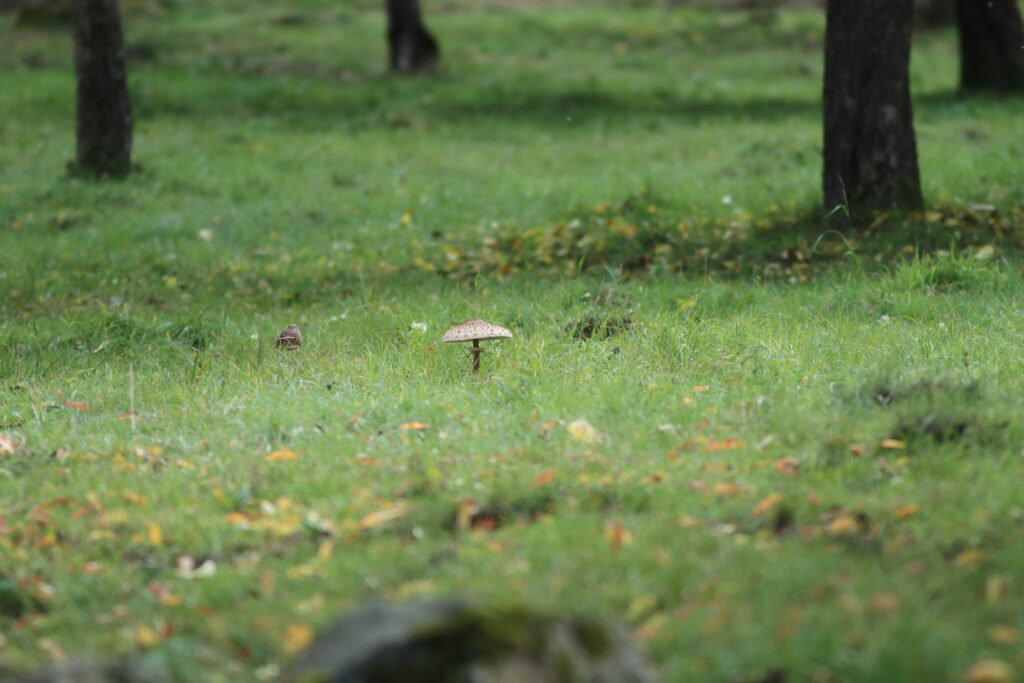Hm… how do I explain this topic in a simple and efficient way without getting lost in multiple rabbit holes and becoming emotional on the way? I think when people hear ideology they think mostly of ones of political context like anti-semitism, fascism or communism, at least in the Western cultures. If they thought a little bit about ideologies they may also think that certain religions are ideologies.
A funny thing I have noticed regarding ideologies and idealism is that on the one side people think that it is something bad that we need be aware of, on the other side are they not self-aware enough to realise their own ideologies they follow. They will justify their ideologies with strange statements like that their way of thinking isn’t an ideology but common sense or deflect by saying “Well, my way of thinking can’t be an ideology because it isn’t antisemitic or fascistic, your definition of ideology is flawed!”.
Therefore let me get certain aspects of idealism and ideologies clear.
- Ideals create structure based on the information we perceive from our environment and reality.
- There are a theoretically infinite amount of ideals possible because every living being perceives reality a little bit different and have a different concatenation of experiences. These different build ups of experiences can lead to different structures of how we describe reality.
- The infinite amount of possible ideals gets reduced through culture and society in which we grow up. We are not totally free in creating structure in our reality but experience judgement through our social group and environment that gives us orientation. When we grow up we can either reinforce the ideals that were taught to us or we can question them and try to find other ones that match our reality perception better either through self-reflection and/or seeking out teachers that can support us in the process.
- Ideals can be contradicting because they may describe structures of different parts of our perceived reality.
- E.g., Christians say that god gave us free will but at the same time Christianity is so convinced from itself that it justifies harm to the rest of the world if it doesn’t follow them. They have a strong dissonance between what they think, believe or say and their actual actions.
- As ideals create structure they can not only show the beauty of diversity but also create a separation between groups.
- Ideals can be used in this context either to dehumanise the enemy group, saying that they are not humans but animals and therefore find a justification for their cruelty, or they dehumanise themselves by saying that they are super-humans or “Übermenschen” which means they claim to be smarter, better, the next step in the evolution of humans.
- Therefore, if we are not sure about the ideals of other people we can observe whom and in which context they dehumanise, this gives us a clear picture about their ideologies.
- No one is born with ideologies, they are taught and learned.
- Ideologies do not only create structure but attach a moral value to it. It tells us which is good and which is bad. it does not only say that there is a difference.
- As ideals create structure they can simplify and make reality more abstract. The danger lies in assuming that ideals are an exact representation of reality.
- Famous people are carefully creating their image towards the public. Therefore, they are often also called idols in the media business. To me that’s the most obvious and simplest form of idealisation. Because if you just compare for one moment what you think about this person and what their life must be and compare it with your own or of people that are close to you, you will hopefully realise very fast that you basically have no information about your idol. None, the most things you assume and predict based on what little information you have but forget that they are also humans. … There exists the following matching proverb “Never meet your heroes.”. It means that you will otherwise suddenly see they are maybe not always friendly or have other perspectives than you. A new topic in this context that gets especially prominent through influencers having the possibility to go ‘live’ on different streaming platforms is the topic of parasocial relationships.
A world without ideals would be very difficult to navigate as we wouldn’t be able to distinguish between different inputs in our perceived reality and also would have no hint regarding how to evaluate the input in such a way that we can make decisions. Without structure we wouldn’t be able to differentiate between a table and a chair. You can sit on both. An ideal would tell us that a chair is the preferred object to sit on. Therefore, we need ideals that create structure as they allow us to perceive diversity and make decisions.
I know that we live in a world where some destructive ideologies exist. The thing is that diversity cannot be destroyed for ever. Diversity is an innate attribute of nature that will always continue to exist, which allows nature so survive in the end. Example given, just because the ruling classes in a society decides that gender is defined in a binary form, doesn’t mean that people in this society won’t experiences differences to this ideology. Just because we ignore certain parts of reality or are unaware of it, doesn’t mean that it doesn’t exist. People need to realise that humans are part of nature and therefore also inherit this attribute of diversity. Humans can eliminate other humans again and again but they will never eliminate this attribute. Therefore no society can stay stable if they try to stay the same.
As an ideology is more like a map of reality, the actually reality can be quite diverse from what the map originally tried to abstract.
In my reflection I came to realisation that destructive ideologies come up when people don’t know any healthier way to cope with reality and their emotions. It is easier for them and learned to blame another group for their own suffering. Way too often ideologies are also introduced through propaganda in the media (e.g. through a state). The steps are here to create emotions, especially fear, in the listener and then providing solutions in form of the ideologies that match the goals of the speaker. The focus here is really on creating emotions in the listener, this can be done by either telling lies or leaving out certain facts and emphasising other facts so that the shown reality is a deformed one. Therefore, in the end, also in this step already the concept of idealism and creating structure is made use of.
Ideals are through their property to create structure an explaining components for world views. Peoples world view consists of multiple different ideals, some are learned already in childhood, others are very specific and caused by their (sensory) reality perception or how society sees them based on their external visible factors. However, you may know how difficult it is for people to change their world view. This is caused by the fact that they need to develop a complete new ideal, a new structure that explains reality for them. This is definitely most often not the path of least inner resistance. People avoid self-reflection because it would mean that they need to processes the big, diverse input of reality and identify new structures. This self-reflection is happening even less if people are not affected by the negative effects of their ideology. If a white supremacist isn’t affected by their racism, they have no motivation to change. They will prefer to find contradicting justifications to add to their ideology instead of changing their ideology.
Outro
So, what have we learned? … Ideals create structure in our reality perception. Without structure we wouldn’t be able to orient ourselves in reality. … A bit of structure allows us to see diversity, too much structure makes us blind towards it and we may want to destroy things that are different. … Ideals are learned, ideals represent our world view and therefore ideologies can be used to manipulate our world views. … Changing ideals, structures of reality perception has a high cost and may be avoided even though we create contradicting ideals. … No ideology exists forever because over time diversification will always arise.
… If we are in conflict with somebody else the next time, we can try to identify their structure, their ideals on which their statement makes sense for them and maybe see if I we can provide them input so that they can reflect on or extend their world view.
The idea of “ideologies” is therefore a concept that allows to describe world views of humans in an abstract way without getting too precise and fall in another ideal theory ourselves or staying on such a high level that it is a difficult starting point to reflect on from.
That’s it. No optimistic message about how we could help ourselves, just a glimpse into the topic of complex reality perception.
Okay, maybe two questions/statements I’ve got that we can reflect on.
First, way too many people seem to be lost in their ideologies. They are so deep in it that they can’t recognise it anymore themselves. Their view on life and reality appears to be tinted completely in their ideology. People mistake their reality perception for actual reality. They are so unaware of their limits that they think all they know must be everything there is to know.
Second, what happens once an ideology is completely followed through? People are naive if they would assume that then the world is in perfect harmony. No, humans will find differences in other aspects and create new ideologies based on this. Assume Christianity would be the only religion on the world or everybody would be white. They will find differences and between who people live their life of Christianity or that being white isn’t enough anymore but that you need to have a certain kind of look. If you don’t think that’s true, maybe you should just take a look at European history. The question I ask myself if humanity will ever be ready as a global community to accept their diversity instead of trying to follow ideologies that try to destroy it. Where would we be as society if we valued each member of it and their reality perception instead of creating artificial social hierarchies where humans exploit each other? I know that some people have an ideology in mind that the emotions of humans are the problem and if we get rid of it that only then we can find peace … but please, don’t let me repeat myself to tell you how short-sighted that is.
P.S.
Even I am idealising myself in this blog. You don’t know my name, gender, age, upcoming, my preferences in all kind of things, my disabilities and so on. If you knew certain parts of these things it may would influence how you perceive my text. You would think differently about the text if you knew that I am a (trans-)man, a (trans-)woman, or identify as non-binary. You would interpret it differently if you knew that I am in a left or right wing party, if you knew from which country and continent I am from, if you knew my skin colour or how I look like, if you knew whether I believed in an Abrahamic religion, paganism, or if I am atheist. Your prejudices, a.k.a. ideologies in this context, will influence your interpretation. If you assume a woman couldn’t write this text, you will find justifications why this may be an exception.
P.P.S.
What would happen if we wouldn’t stigmatise disabilities anymore and instead asked directly affected people how and what kind of support they need? Let us humanise other humans.
Okay, okay, I know, writing about ‘intelligence’ can be easily taken the wrong way. Because the term is so often used in supremacy dreams of . . .
This post is a continuation of “Faith and what it means in my world view”. It breaks faith up into sets of beliefs that in . . .
Originally I wrote this piece in the mid of 2019. It is kind of the foundation for all my thinking in the further posts. (And . . .
This is a guideline to give you something into your hands to become better at identifying your emotions. This guideline can’t and will never be . . .
We all have fears. Of some we are very much aware, of others not. Some fears are easier to overcome for us. Some of the . . .








